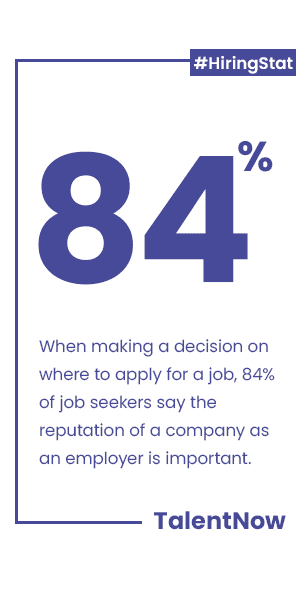Recruiting talented people is no easy task. As companies seek innovative ways to source and recruit, many use tactics that do not reflect their workplace culture. Using your company perks is not a bad idea, but the perks must be fitting and representative of your organization. Initially, job candidates and even your existing employees may find them interesting, but they may not necessarily be the hook that keeps them engaged.
Perks come in many shapes and forms and offer varying benefits. Some companies believe that free food, paid travel, and other offerings of the like are exactly what it takes to attract new talent and to keep the talent they have. This is not a long-term solution. What’s worse is when one company attempts to mimic a competitor’s perks in the hopes that they, too, can enjoy the same presumed successes, and much to their chagrin, it goes sideways, and for good reason.
Company perks should be a reflection of the company’s culture and match the values of that specific organization. Since no two companies are alike, it’s an erroneous assumption to believe that what works for one company should work for another.
According to a survey conducted by Gallup, a sample population of job seekers was asked what matters most to them about a potential employer. The results of the survey revealed that the respondents were interested in a company’s mission, culture, growth, employer brand, advancement opportunities, compensation, and compelling statements as to why they should consider employment with one organization over another. Not a mention of free food, ping-pong tables, or free haircuts was cited by anyone in this survey.
company’s mission, culture, growth, employer brand, advancement opportunities, compensation, and compelling statements as to why they should consider employment with one organization over another. Not a mention of free food, ping-pong tables, or free haircuts was cited by anyone in this survey.
An article on Careertopia, supports the findings revealed by the Gallup survey. The article goes on to state that the five things job seekers want from an employer are: career growth; work-life balance; fair compensation; great leadership; and alignment with a company’s mission, vision, and values. Once again, perks were not mentioned as being an attraction factor.
In a different survey conducted by Gallup, they queried 1,700 U.S. workers to determine the attraction factors that appeal to the three employed generations. What the results of this survey revealed is that Millennials, who are presumed to be job-hopping know-it-alls, are in actuality seeking out employers that cater to a generation thirsty for opportunities to learn and grow, to be managed by great leadership, to be engrossed in work that is interesting and which offers challenges, along with opportunities to advance their careers. Additionally, the survey results disclosed that a workplace with an informal and “fun” environment was not a high-attraction factor highly coveted by this generation.
Independent of the Gallup survey, Deloitte conducted a Millennial survey which revealed that compensation along with interesting work and work-life balance rose to the top of the results and what is most in demand by Millennials.
For people born between 1965 and 1978, also known as Generation X, they too have stated what is important for them in the workplace. For this group, work-life balance rises to the top of the results. For this generation, the realities of managing parenthood along with taking care of a parent is becoming more commonplace with each passing year. To that end, having a flexible schedule that allows for caregiving is a big attraction factor. Further, Gen X has developed a reputation for being results-oriented, problem solvers who seek out work opportunities where their feedback and opinions are welcomed. Free food, indoor putting greens and other perks of this nature were not mentioned.
As leadership scrambles around seeking out the next best shiny object to use in their recruitment and retention arsenal, they need to stop and revisit that which is already in front of them: their company culture. This one item is the biggest and best perk any organization can offer to potential and existing employees. This is what attracts and keeps needed talent. People seek out a culture that aligns with their personal beliefs. Servant leadership, 360 feedback, companies that take an interest in their employees’ well-being, opportunities to learn, good communication, respectful interactions, work-life balance, fair pay, and for job seekers, a shortened hiring processes and timely follow through with communications all matter. All of these are indicative of an organization’s culture and what is being researched by job seekers and responded to by employees.
The irony is that the bells and whistles that many companies buy into are actually not what they need. People place more value on a relationship and a good work opportunity than they do a ping-pong table or free haircuts. I guess the old expression is correct… sometimes people can’t see the forest through the trees.
— Previously published on 1/19/2017 at TalentCulture.com